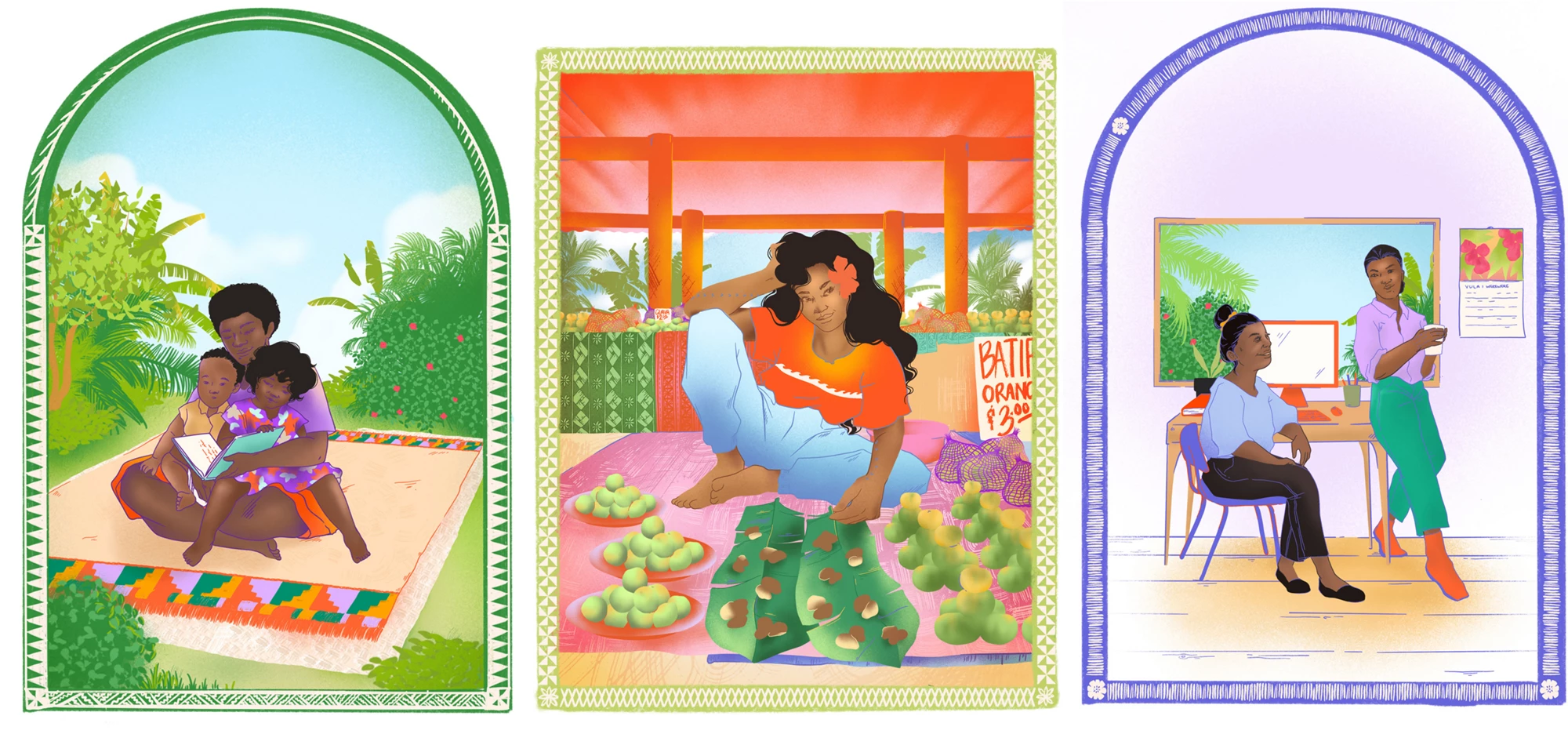This International Women’s Day we’re celebrating Pasifika women with the beautiful work of Fijian-born artist Elsie Andrewes.
Andrewes, a New Zealand-based illustrator and florist, created three images for IFC inspired by the women in her life.
“Like most of my previous works, inspiration for these pieces stems from personal memories and experiences of strong, independent, and nurturing maramas” she said.
“I have an old photo album that serves as a good base of reference. I look to old images of my own mother, and her mother and the community that surrounds them. They have always been my drive and inspiration. Referencing old photos ensures experiences I want to portray are genuine, yet I am cautious to keep identities anonymous to protect sacred moments,” Andrewes said.
For IFC in the Pacific these images help to underscore some crucial elements of our work, including gender issues in climate transition efforts, making employee childcare a priority and addressing hurdles to women’s economic participation.
“Every day I’m inspired and encouraged by the creative, resilient and powerful women I work alongside in the Pacific,” said Judith Green, IFC Country Manager for Australia, New Zealand, Papua New Guinea and the Pacific Islands.
We are grateful for the support of the governments of Australia and New Zealand for our Pacific gender equality work.
Pacific Island nations are among those most at risk from rising sea levels and more frequent extreme weather events due to climate change, and it is women who will bear the brunt of these disasters. There is growing evidence showing that addressing gender inequality and climate change is inextricably linked, showing that being gender smart is also climate-smart.
quality options for childcare means parents, particularly women, can work in good jobs while knowing their children are being cared for in safe environments.
Gender equality and economic inclusion are essential for economic growth and development. Across Pacific nations our gender work has identified ways businesses can save money through addressing gender-related issues, such as gender-based violence and lack of childcare support, as well as broadening economic opportunities for women.
Published on 8th March 2023
